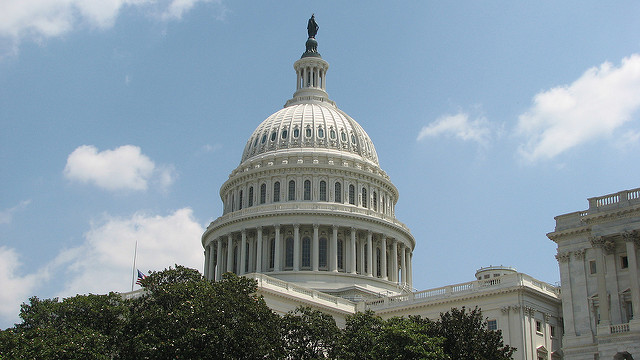
In a letter to members of Congress, ATR President Grover Norquist expressed opposition to H.R. 275, legislation that replaces the free market competition in Medicare Part D with government forced negotiation.
This legislation was introduced by Congressman Peter Welch (D-Vt.) and co-sponsored by a number of Democrats and Congressman Francis Rooney (R-Fla.) as the lone Republican.
Despite Congressman Rooney’s completely misguided co-sponsorship, this is not bipartisan legislation. The far-left has been attempting to dismantle Medicare Part D for years in order to enact more government control over the American health care system.
Click here to read the full letter.
Medicare Part D works because it promotes free-market competition in order to deliver the best, lowest-cost outcomes for taxpayers and patients alike. As the letter notes:
“Rather than having the government negotiate, Part D allows negotiation between pharmacy benefit managers (PBMs), pharmaceutical manufacturers, and pharmacies. This system works because Congress created a non-interference clause when Part D was created which prevents the secretary of Health and Human Services (HHS) from interfering with the robust private-sector negotiations.”
Medicare Part D has been a success. It has saved taxpayers billions of dollars and has granted patients access to medicines at lower costs. It has also been a financial success, with federal spending consistently coming in at 45 percent below projections according to the CBO. This program is successful precisely because of the negotiations between pharmacy benefit managers, pharmaceutical manufacturers, and pharmacies.
By injecting forced government competition into the process, H.R. 275 would disrupt this successful program:
“H.R. 275 would destroy this successful system by allowing the government to set prices and override existing negotiation.Prices would be set on an arbitrary basis rather than through the free market. This would have several adverse consequences.”
This would have a number of adverse consequences to the healthcare system as the letter notes:
“First, it would harm the incentive for manufacturers to innovate because there are fewer profits available to finance the next generation of life-saving and life-improving prescription medicines. In turn, this will result in higher long-term healthcare costs because illnesses need to be treated in a reactive, not proactive way.
Second, restricting innovation will also harm access. The U.S. is currently a world leader in medical innovation and access because it promotes innovation and free market competition. As a result, the majority of cures are developed in the United States and are launched years before other developed nations have access to them.
For instance, the US had access to 95 percent of the dozens of cancer drugs launched between 2011 and 2018. By comparison, the U.K had access to 74 percent, Japan had access to 49 percent, and Greece had access to 8 percent of these cancer drugs.
Finally, government-controlled pricing will harm the high-paying jobs that come from research and development of new medicines.”
Medicare Part D is a program already delivers medicines to seniors in an efficient way that balances cost and access. Replacing the free market competition of Medicare Part D with top down government control will lead to reduced access, higher prices, and less innovation.
All members of Congress should reject the Welch-Rooney bill and support private sector negotiation in Medicare Part D.

